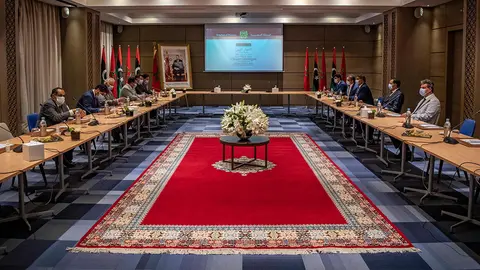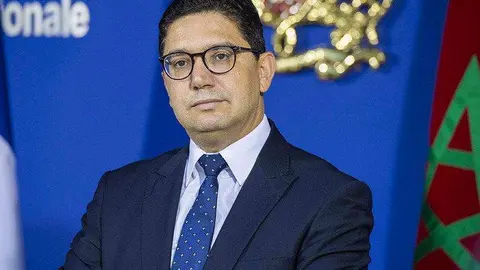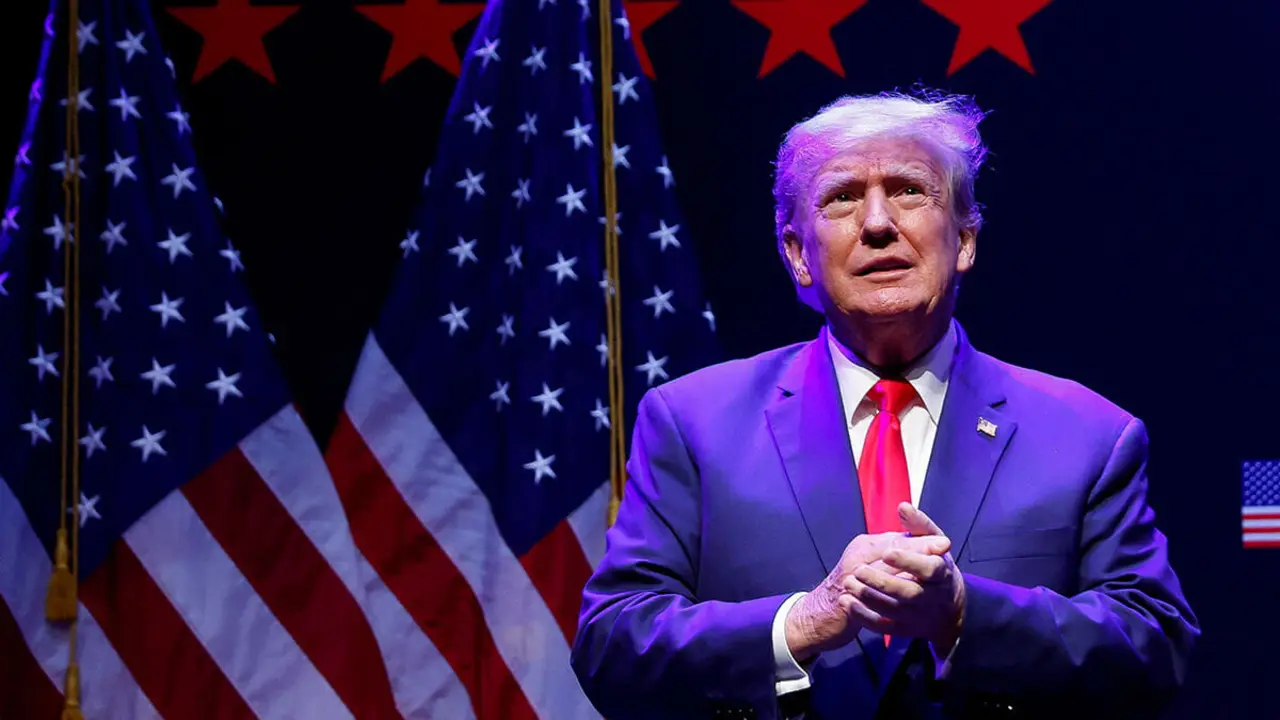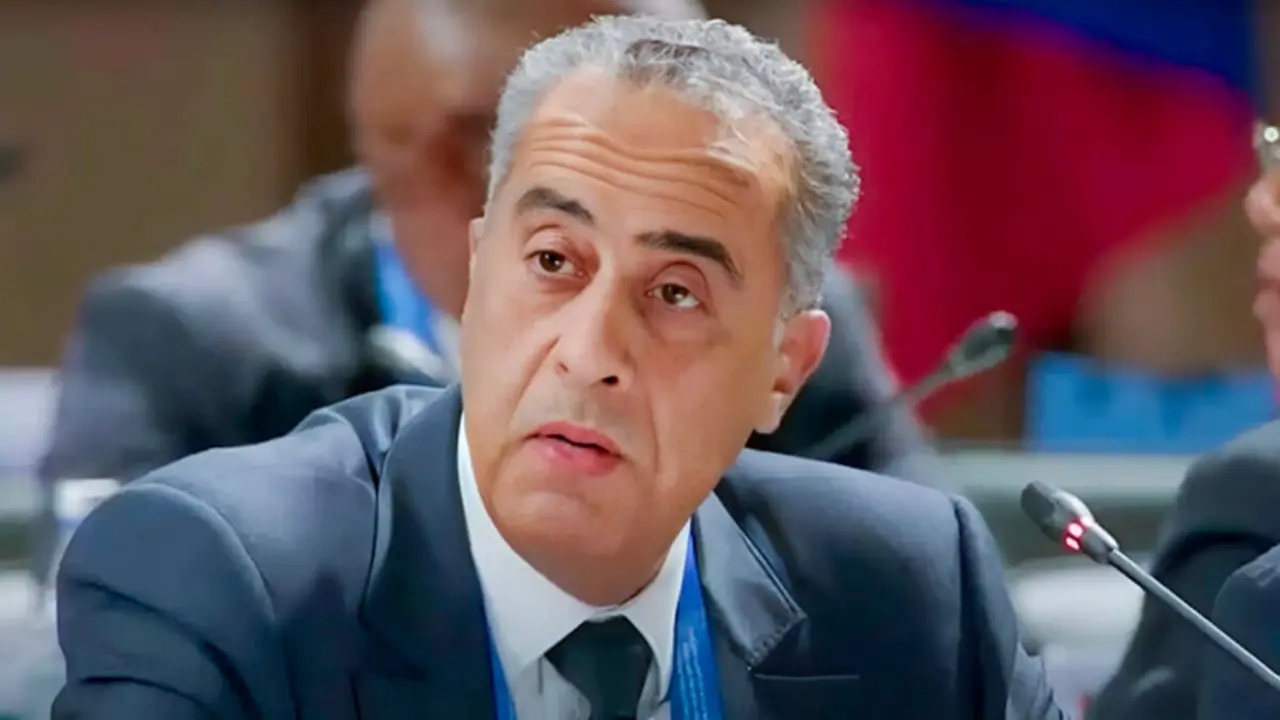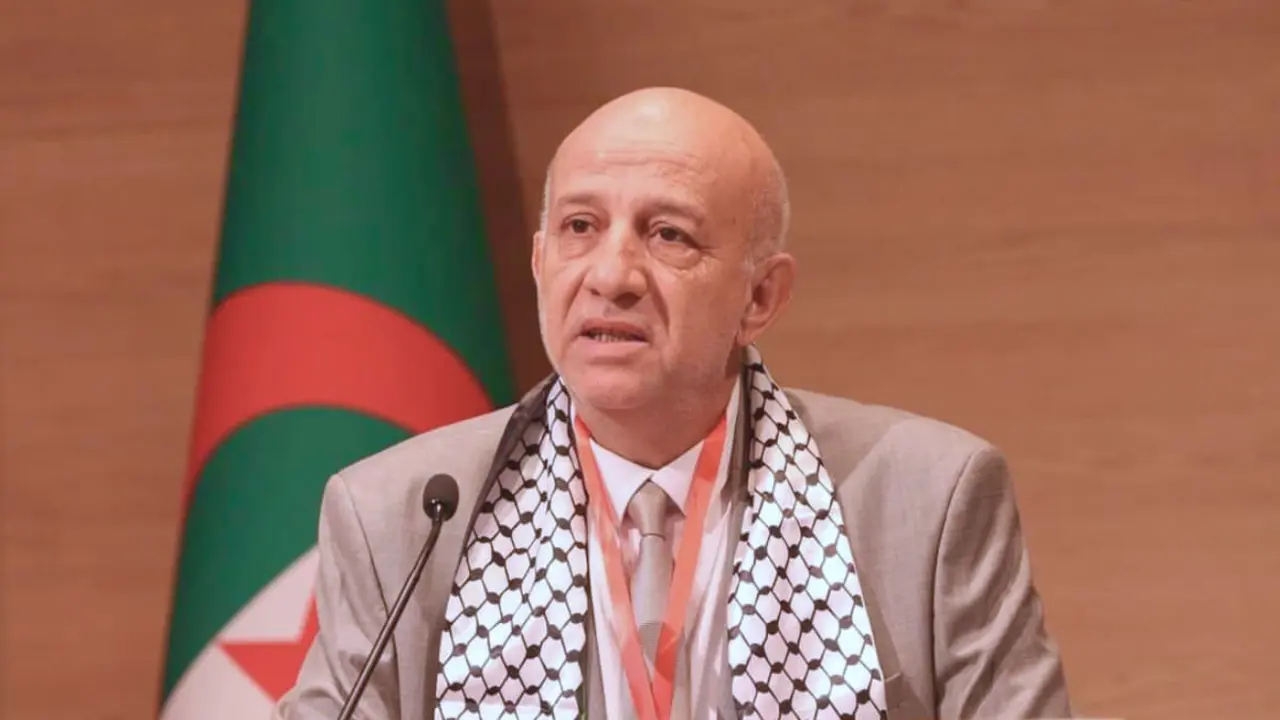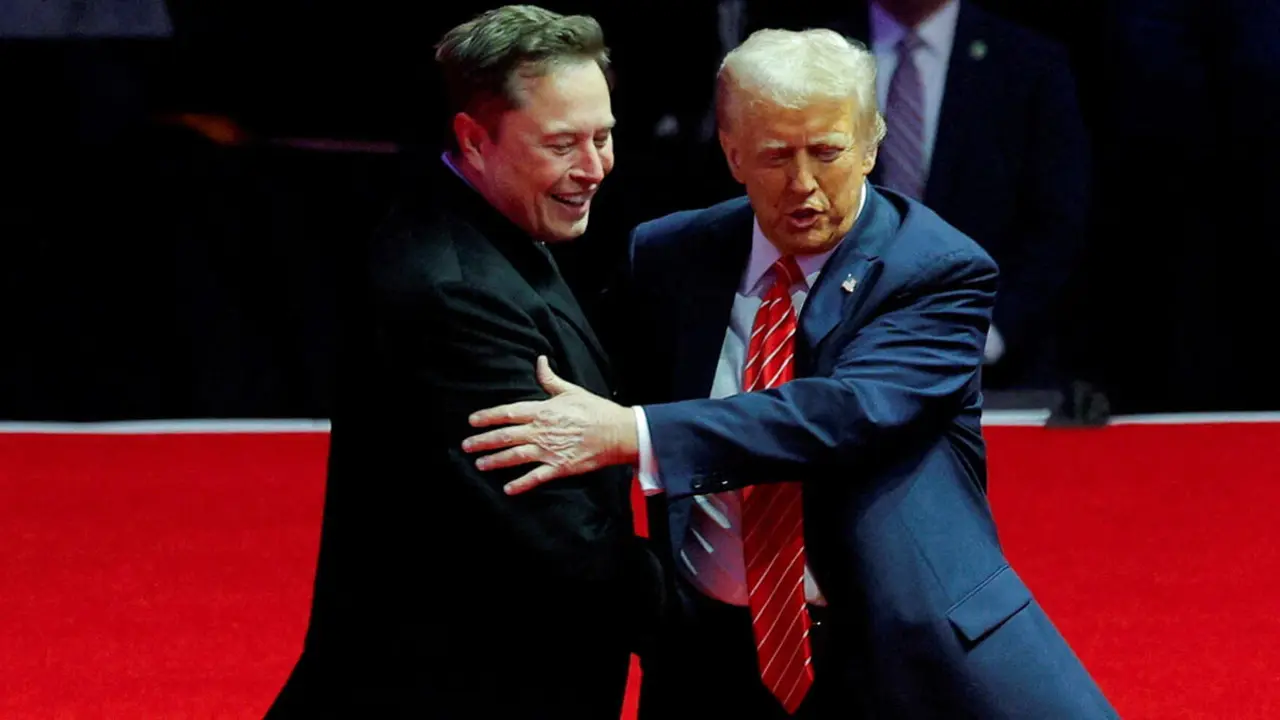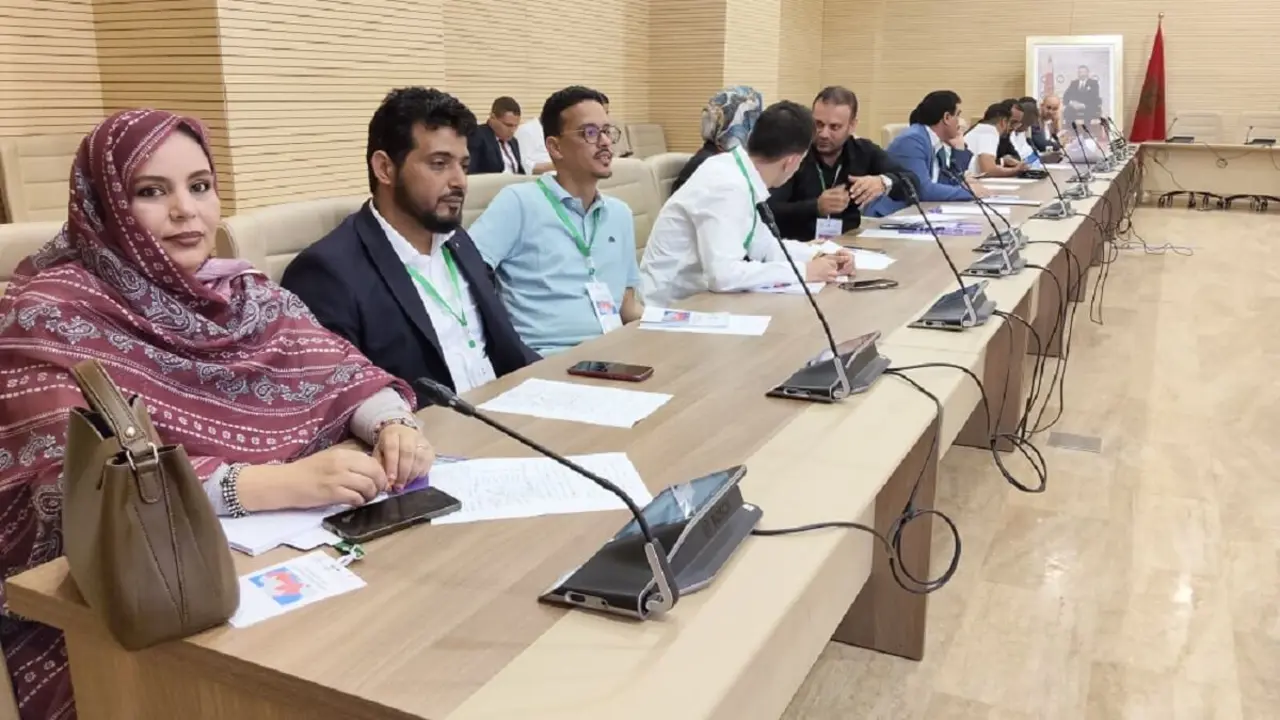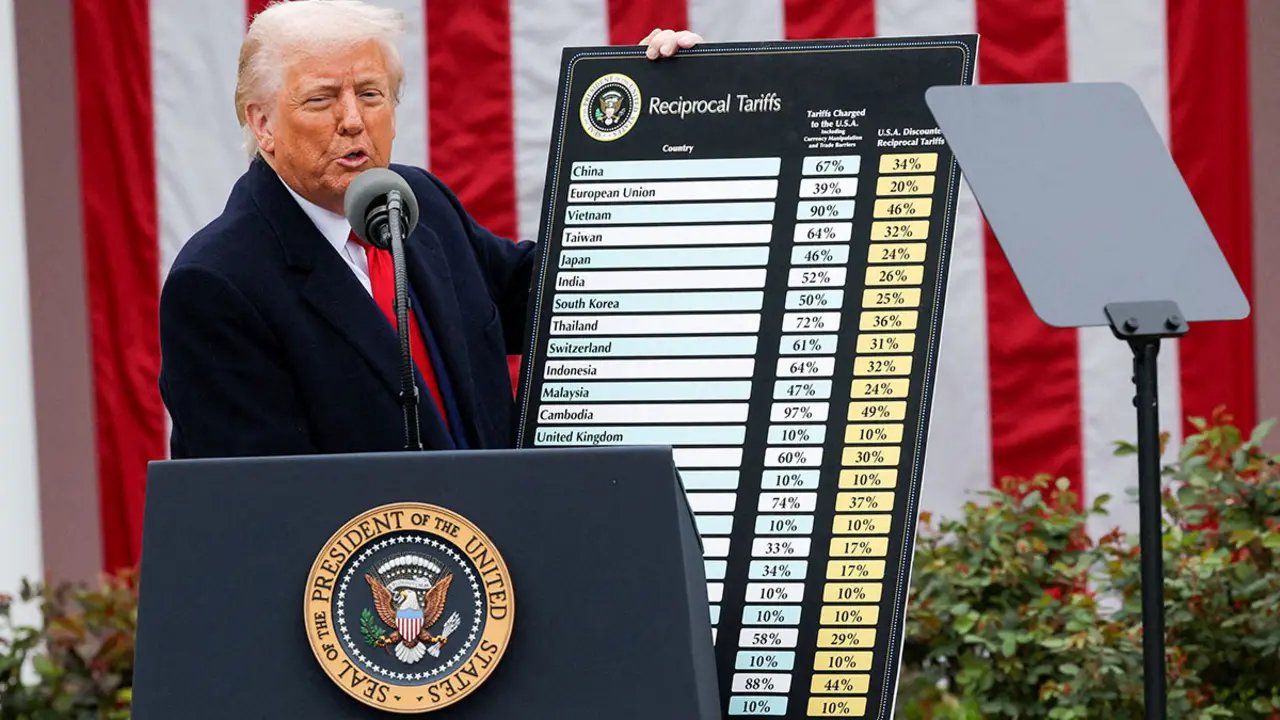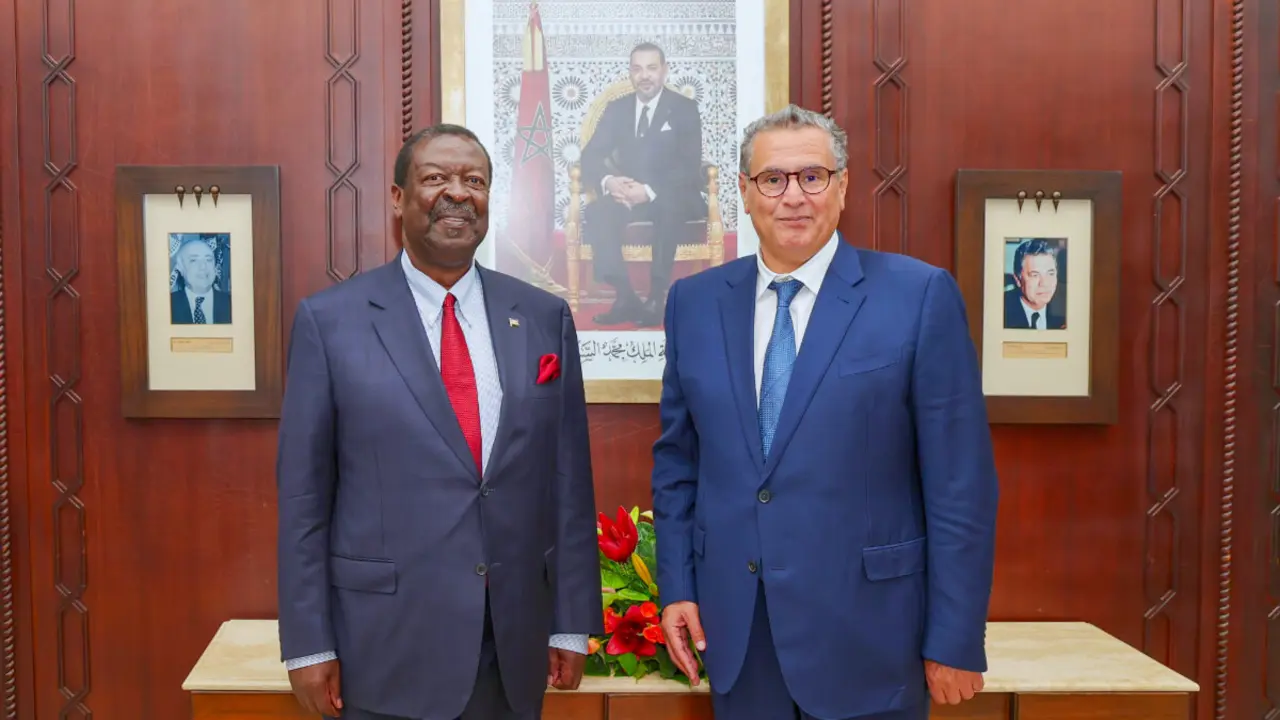Libya calls for Morocco and Mauritania's presence for Maghreb unity
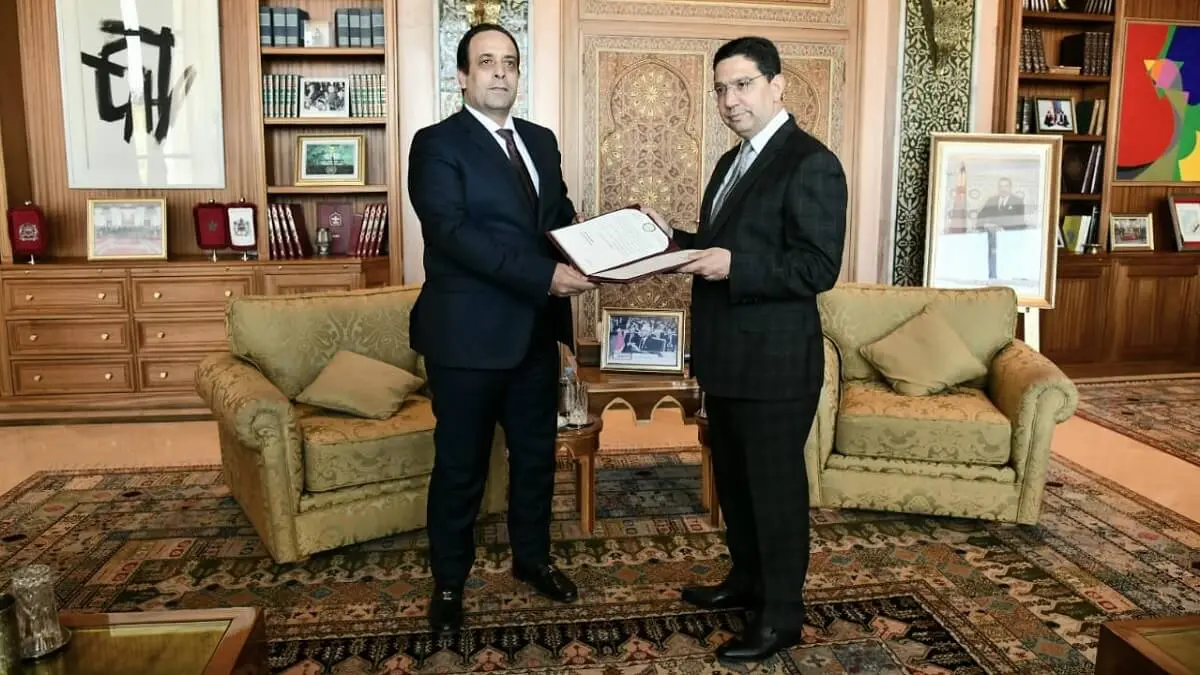
The Libyan Presidential Council demands, in the face of Algeria's exclusionary position, that Morocco and Mauritania must participate in the unity of a stable, balanced and peaceful Maghreb, and has thanked Morocco for its support in the face of the Libyan national political crisis.
The Moroccan Minister of Foreign Affairs, Nasser Bourita, received the envoy of the President of the Libyan Presidential Council, Sami al-Menfi, who delivered an official message to the King of Morocco, Mohammed VI, from the President of the Libyan Presidential Council, Mohammed Younes al-Menfi.
Libya has positively highlighted the intense cooperation granted by the Moroccan kingdom in order to promote dialogue and negotiation between the warring parties on Libyan territory.
Prior to the meeting between Nasser Bourita and Sami al-Menfi on Monday, a Maghreb consultative meeting convened by the Tunisian President, Kais Saied, was held, attended by his Algerian counterpart, Abdelmadjid Tebboune, and the head of the Libyan Presidential Council, Mohamed Younes al-Menfi, in the absence of Morocco and Mauritania. Following the meeting, the Libyan administration promptly sent the aforementioned written message to King Mohammed VI through Sami al-Menfi. The exact content of the text was not revealed, but the Libyan diplomat in Morocco Abu Bakr Ibrahim al-Taweel did refer to Morocco's recognition of the work carried out and his country's commitment to reactivate the Arab Maghreb Union bloc, since it is the only valid framework for the countries of the Maghreb, thanking Morocco for its efforts to resolve the Libyan political conflict.
M. Nasser Bourita a reçu, aujourd’hui à Rabat, l’Emissaire du Président du Conseil présidentiel libyen, M. Sami El-Menfi, porteur d'un message à Sa Majesté le Roi Mohammed VI de la part du Président du Conseil présidentiel libyen, M. Mohammed El-Menfi.@LPCLYM pic.twitter.com/2kbnsVxKA5
— Maroc Diplomatie 🇲🇦 (@MarocDiplomatie) April 23, 2024
From Libya, the idea has been put forward that Morocco is a basic country in the balance of North Africa and within the Arab Maghreb, and that it has played a decisive role in efforts to pacify Libya, a country immersed in an ongoing civil war between the sides claiming power after the fall of Muammar al-Gaddafi's authoritarian regime in 2011. The two poles of power on Libyan territory are represented, on the one hand, by the capital Tripoli, now led by the government commanded by Abdul Hamid Dbeiba, whom another Tripolitanian faction, represented by former foreign minister Fathi Bashagha, tried to remove from office, and, on the other hand, by the eastern enclave of Tobruk, led by Marshal Khalifa Haftar, head of the Libyan army.
Libya has been immersed for years in a political process to establish free and fair elections mediated by the United Nations (UN) after a civil war broke out in 2011 between the former National Unity Government led by Fayez al-Sarraj, supported at the time by the UN, and the Libyan National Army led by Khalifa Haftar.
Negotiations were not successful and the political process that should lead to the establishment of a constitution and the calling of elections is still ongoing.
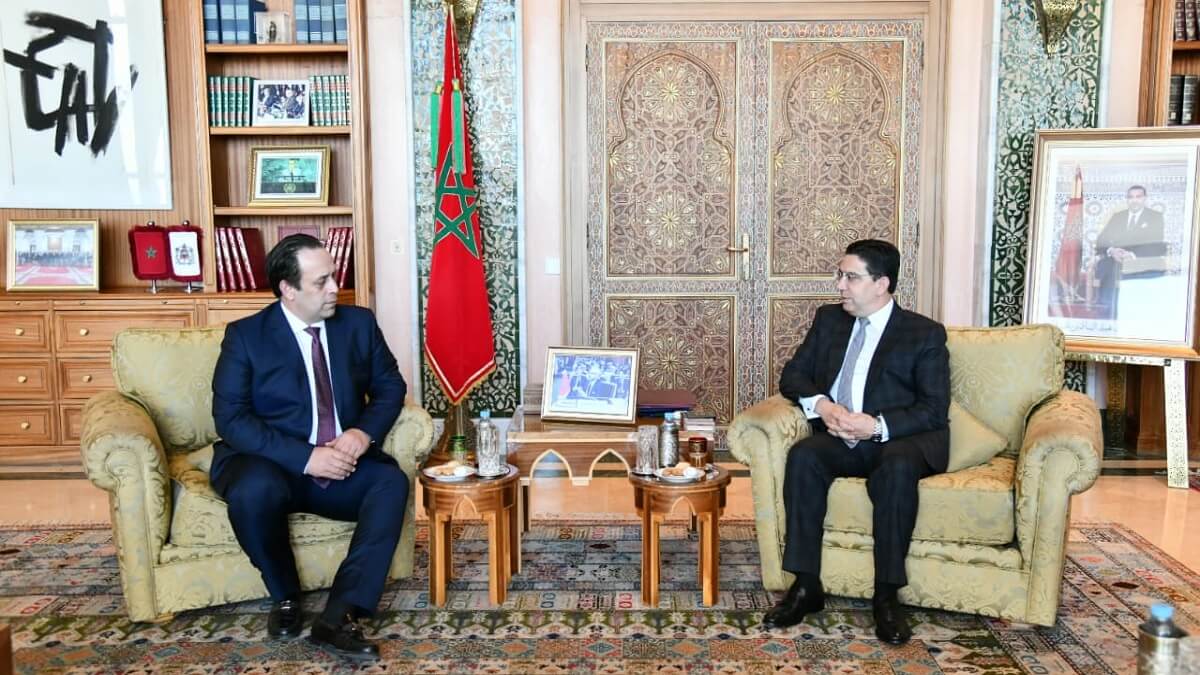
Morocco took part in mediating and played a leading role in organising talks between the parties involved to reach a political agreement, which is what the Libyan Presidential Council has deeply appreciated.
The diplomat Abu Bakr Ibrahim al-Taweel, chargé d'affaires at the Libyan Embassy in Morocco, said in a statement to the press after the meeting between Nasser Bourita and Sami al-Menfi that this meeting between the two representatives confirms the excellence of fraternal relations between Libya and Morocco, as reported by the media Rue 20.
The Libyan diplomat also pointed out that this meeting serves to strengthen the Arab Maghreb Union in order to promote regional stability.
The Arab Maghreb Union, whose foundations were laid by the five countries of the region in Marrakesh in 1989, continues to be the reference body for dealing with issues and questions relating to the Maghreb region, ruling out other proposals and alternatives, such as those that Tunisia and Algeria tried to develop on Monday.
Abu Bakr Ibrahim al-Tawell conveyed, through the words of the President of his country, Mohamed al-Menfi, the appreciation of the role of the Kingdom of Morocco as an active and influential state in the Maghreb Union, seeking to achieve the establishment and realisation of this bloc and political entity that translates the aspirations of the peoples of the Maghreb as a whole, as reported by the Assahifa media.
In this context, he expressed his country's gratitude to Morocco for its firm and permanent support, under the leadership of King Mohammed VI, to the Libyan cause, which is materialised through several agreements concluded, in particular those of Skhirat, Bouznika and Tangier. "We are forever grateful for Morocco's support for the Libyan cause, starting with Skhirat, through Bouznika, to Tangier, then Bouznika again, and for all that the Kingdom has given us to reach this current political entity," the Libyan ambassador pointed out.
He also pointed out that the Moroccan kingdom helped effectively to resolve the Libyan crisis with the above-mentioned high-profile events: the Tangier and Bouznika talks and the 2015 Skhirat Agreement, a pact that provided for the creation of a National Unity Government with a president, two vice-presidents and six other members, which is still considered a key element in settling the Libyan conflict.

